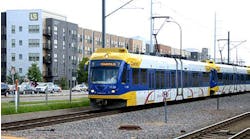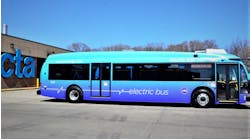Local transit initiatives were the big winners in the midterm elections in November. Across the country, voters exhibited overwhelming support for improved transit and a willingness to pay for it. As ridership has steadily increased year after year, a broad base of transit customers know firsthand the value they receive by investing in their local service. In the past decade nearly 75 percent of ballot measures raising taxes to fund transit improvements have passed.
Strong messaging by the winning side appears to have had its intended effect and proposals passed with large margins. For example, the MARTA expansion referendum for a 1 percent sales tax increase passed with 73 percent approval and Seattle’s King County Metro will expand bus service funded by a 0.1 percent sales tax increase, thanks to overwhelming approval.
On the other hand, a fourth of the propositions failed, many by equally strong no votes – Polk County Florida’s 1 percent tax increase and Austin, Texas’ light rail line proposal going down in defeat. Interestingly, post-election analysis in Austin revealed that the closer a voter lived to the project, the more likely one was to vote affirmatively.
Some credit for transit’s increasing popularity, and resultant friendly voters, must go to changing demographics and the better delivery of services. Real-time arrival signs and smartphone apps, optimized routing through management software programs, convenient fare collection and more customer amenities such as Wi-Fi have earned the loyalty of voters and a willingness to invest in their transit service.
What will it take to transfer local enthusiasm and support for improved transit to the federal level, where the vast majority of funding is appropriated? Good old-fashioned advocacy. The American Public Transportation Association (APTA) provides advocacy guidance and ongoing communications programs to assist you in educating your congressmen and the public. Check it out at apta.com.


